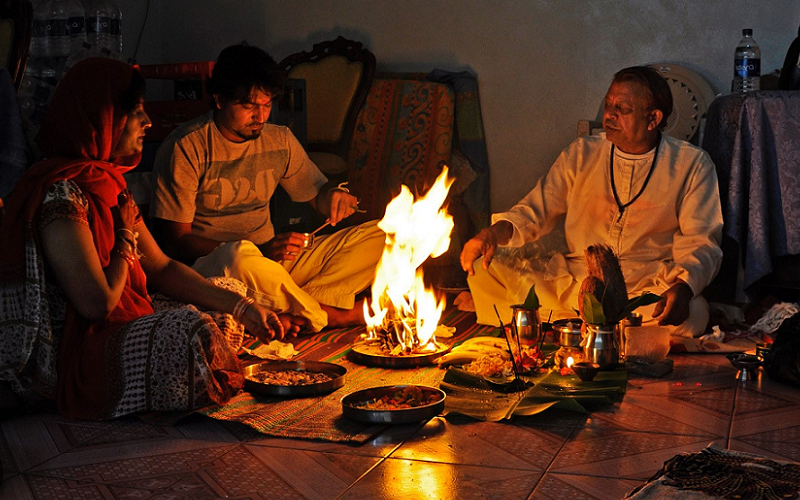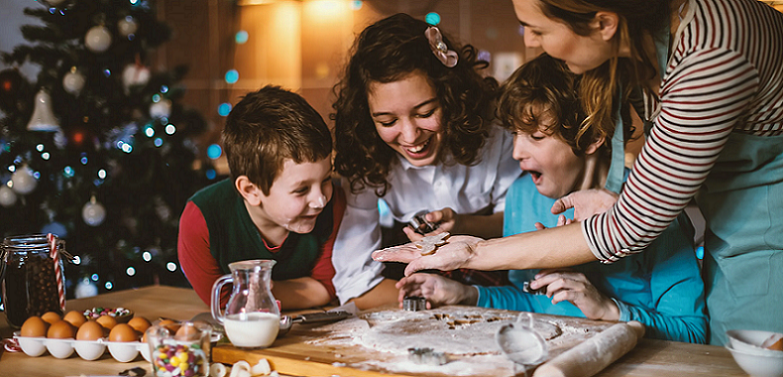
Family rituals are a powerful tool that can enhance family bonds, provide a sense of belonging, and create lasting memories and traditions. Research has shown that families who engage in regular rituals experience improved mental health and a greater sense of connection. However, creating and maintaining family rituals can be challenging. Here we explore the types and benefits of family rituals, as well as provide practical tips for creating and making them stick.
What Are Family Rituals?
Family rituals are a set of traditions or routines that a family performs on a regular basis. They can range from daily rituals, such as eating dinner together or bedtime routines, to weekly rituals, such as family game night or a weekend outing, to seasonal or annual rituals, such as celebrating holidays or family milestones.
These rituals can involve simple actions, such as a shared family meal or a regular movie night, or more complex events, such as a family vacation or a yearly family reunion. The key feature of family rituals is their regularity and consistency, as they provide a sense of continuity and stability in the midst of the ups and downs of daily life.
Family rituals are an important way to strengthen family bonds and create a sense of belonging for all family members. They also provide a source of comfort and support during challenging times and create positive memories and traditions that can be passed down through generations.

Types of Family Rituals
There are several types of family rituals that families can engage in to strengthen their bonds and create a sense of belonging.
Daily rituals are those that are performed on a daily basis, such as eating meals together or reading a bedtime story.
Weekly rituals are those that are performed once a week, such as a family game night or a weekend outing. Seasonal rituals are those that are associated with a particular season, such as decorating the house for a holiday or participating in a seasonal activity like apple picking.
Annual rituals are those that are associated with a specific event or milestone, such as a family vacation or celebrating a family member’s birthday.
The types of family rituals can vary depending on the family’s interests and values, but they all share the common feature of regularity and consistency. By engaging in these rituals, families can create positive memories and traditions that strengthen their bonds and provide a source of comfort and support during challenging times.

Benefits of Family Rituals
Family rituals provide many unique benefits that can enhance the well-being of all family members. One of the most important benefits is the ability to strengthen family bonds. Family rituals provide opportunities for family members to engage in shared activities, which can increase feelings of closeness and connection.
This sense of belonging can be particularly important during times of change or stress, such as a move, a new school, or a family crisis. Family rituals also provide a way to create positive memories and traditions, which can be passed down through generations. These memories can serve as a source of comfort and support, reminding family members of their shared history and values.
Family rituals can also have positive effects on mental health. Engaging in regular family rituals can provide a sense of structure and predictability, which can be particularly important for children. This predictability can help reduce stress and anxiety, as children know what to expect and can feel a sense of control over their environment.
Family rituals can also promote positive values and behaviors, such as gratitude, kindness, and generosity. By reinforcing these values through regular practice, families can instill them in their children, creating a strong foundation for positive character development.
Family rituals can also provide a way to strengthen family communication and problem-solving skills. By engaging in shared activities, family members can practice working together, negotiating differences, and solving problems as a team. This can improve communication and conflict resolution skills, which can be particularly important as children grow and develop their own identities.

How to Create Family Rituals
Creating family rituals can be a fun and rewarding experience, but it can also be a challenge. The key to creating successful family rituals is to identify activities that are meaningful and enjoyable for all family members. One way to do this is to start by identifying your family’s values and interests. By identifying what is important to your family, you can choose activities that reflect those values and interests.
It is also important to make sure that the rituals you choose are age-appropriate. For example, young children may enjoy simple rituals like singing a song before bedtime, while older children may prefer more complex activities like hiking or playing a sport. When creating family rituals, it is important to involve all family members in the process. This not only ensures that everyone has a say in the activities, but it also increases buy-in and commitment to the rituals.
Another key to creating successful family rituals is to be flexible and open to change. Family dynamics and interests can change over time, so it is important to adapt the rituals to fit the changing needs of the family. By being flexible, you can ensure that the rituals remain enjoyable and relevant for all family members.
When creating family rituals, it can also be helpful to set goals and establish routines. This can help ensure that the rituals become a regular part of family life. It is important to make the rituals enjoyable and fun. By choosing activities that are enjoyable for all family members, you can create positive memories and traditions that will last a lifetime.
Tips for Making Family Rituals Stick
Creating family rituals is only the first step; you want to make them stick for them to be effective. There are several tips for making family rituals stick. First, try to be consistent. Consistency is key to establishing new habits, so you want to make the rituals a regular part of family life.
Second, it can be helpful to plan ahead. By scheduling the rituals in advance, you can ensure that they fit into your family’s busy schedule. It can also be helpful to establish routines, such as having a regular day and time for the ritual.
Third, it is important to make the rituals enjoyable. When family members enjoy the rituals, they are more likely to look forward to them and want to continue them. This can be achieved by choosing activities that are meaningful and enjoyable for all family members.
Make sure to celebrate successes. When family members successfully complete a ritual, acknowledge and celebrate their accomplishments. This can help increase motivation and commitment to the rituals.
It’s also important to be flexible and adapt the rituals to fit the changing needs of the family. If the rituals become too routine or boring, be open to change and explore new activities that the family may enjoy.
Examples of Family Rituals
Family rituals can take many different forms and can be tailored to fit the interests and values of each individual family. Here are some examples of family rituals.
- Mealtime rituals: Eating meals together as a family is a common ritual. This can involve setting the table, sharing stories about the day, and enjoying a meal together.
- Bedtime rituals: Establishing a bedtime routine, such as reading a story or singing a lullaby, can provide a sense of comfort and security for children.
- Vacation rituals: Taking an annual family vacation or going on a camping trip can create lasting memories and provide opportunities for family bonding.
- Holiday rituals: Celebrating holidays, such as decorating the house or making special treats, can create a sense of tradition and provide opportunities for family togetherness.
- Movie night rituals: Having a regular movie night can provide an opportunity for the family to unwind and enjoy a shared activity.
- Outdoor activity rituals: Going on regular family hikes or bike rides can promote physical activity and provide opportunities for outdoor adventure and exploration.
- Game night rituals: Regular family game nights can provide an opportunity for friendly competition and social interaction.
- Volunteering rituals: Participating in regular volunteer activities as a family can promote empathy and a sense of community.
- Sports rituals: Attending sports games together as a family or playing sports together can provide a sense of teamwork and healthy competition.
